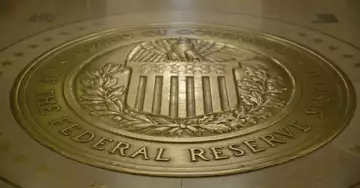Bitcoin fell below $30,000 in European trading on Wednesday, while traditional markets declined. Traders and analysts assessed the potential economic impact of Federal Reserve Chairman Jerome Powell's pledge Tuesday to increase pressure on financial conditions until inflation shows signs of slowing.
Bitcoin's slide in recent days is preparing it to extend a seven-week losing streak that is already the longest in trading history, dating back to the early 2010s. Cryptocurrency has suffered from the downturn in broader markets, stricter crypto regulations, waning retail interest and systemic risks in the crypto sector.
Major cryptocurrencies followed Bitcoin's slide in the last 24 hours. Polkadot's DOT lost as much as 6%, while Avalanche (AVAX), bnb tokens (BNB), XRP, and Ether lost 2.2%. Tron (TRX) was among the few in the green, driven by positive sentiment around its ecosystem stablecoin USDD.
Powell said Tuesday that the Fed remains committed to easing inflation concerns and could take "aggressive" action to ensure a strong economy.
"What we need to see is a clear and convincing decline in inflation, and we will continue to push for that until we see it," Powell said at a Wall Street Journal event. "Achieving price stability, restoring price stability, is an absolute necessity. Something we have to do because without price stability, the economy doesn't work for workers or for businesses or for anybody."
"It really is the bedrock of the economy," Powell added. The Federal Reserve has previously pledged to keep inflation in check while tightening its balance sheets after nearly two years of unprecedented stimulus to support the ailing economy amid the effects of the coronavirus pandemic at the time.
Powell acknowledged that controlling inflation could result in slower economic growth or higher unemployment, but added that price increases would be done in a way that would prevent a recession.
Still, if inflation does not come down, interest rates would be raised until it does, Powell said.
"We'll keep going until we feel we're at a point where we can say, 'Yes, financial conditions are at an appropriate point, we see inflation coming down,'" Powell said.
Why do higher interest rates affect markets?
Higher interest rates typically have a negative impact on the profits of companies that borrow money to run their businesses. In addition, as interest rates on consumer loans such as mortgages also rise, households have less disposable income, which in turn affects the overall economy.
Businesses are therefore affected by both higher borrowing costs and lower consumer spending.
While such scenarios take months to develop, traders are pricing in changes in anticipation of lower earnings, leading to a decline in stock valuations. On Wednesday, for example, U.S. futures on the S&P 500 fell 0.4%, while the tech-heavy Nasdaq slipped 0.6%. European markets showed nominal movement: Germany's DAX rose less than 0.1%, while the Stoxx 600 slipped 0.1%.
Bitcoin has traded similarly to a risky technology stock in recent months, with a correlation with the S&P 500 of nearly 1:1. Some market observers suggest there could be another correction if current market conditions continue.
"The markets have been expecting the hikes for some time, and it looks like the expectations are already showing up on the charts," Anton Gulin, regional director at crypto exchange AAX, said in a Telegram message, "Bitcoin and Nasdaq movements have also been quite correlated for a few months."

